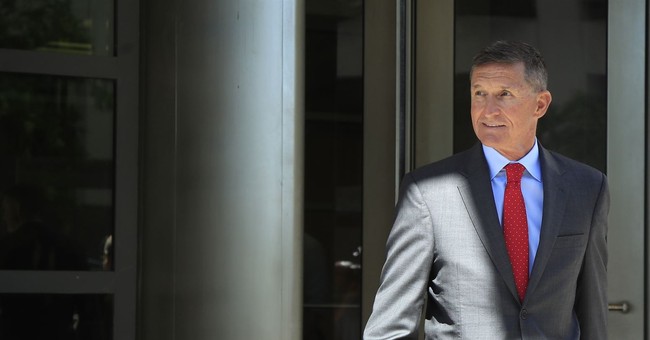
In Part 1 yesterday I provided an overview of the investigation brought by the Special Counsel’s Office against Gen. Michael Flynn, and brief introduction on a few issues that I expect we will hear more about in the next 4 days. Further briefing by all sides is expected on Wednsday, and the oral argument is set to take place before the panel on Friday.
I want to begin Part Two by going through the Factual Statement presented by DOJ in its Brief. This is important because DOJ has far and away the best and most complete view of all the facts underlying the prosecution of Gen. Flynn. I’m not listing every distinct fact precisely as set forth, but rather I focus on the factual representations that are meaningful to the arguments made later in the brief.
The factual basis written included in this motion was not drafted by anyone connected with the Special Counsel’s Office. It offers a factual background not encumbered or “slanted” by the motives and goals of the SCO — motives and goals which have been more and more called into question since the release of the Mueller Report.
According to the Solicitor General and the U.S. Attorney for the District of Columbia, the following facts are true:
- In early January 2017 the FBI stated in a “draft internal memorandum” that it was “closing [its] investigation” of Gen. Flynn
- Around the same time the FBI learned of Gen. Flynn’s conversations with Amb. Kislyak, and later prepared transcripts of those calls.
- Flynn asked Kislyak to not escalate tensions in response to Obama Administration sanctions, and in a later conversation Kislyak confirmed that Russia had taken the incoming Administration’s position into account in determining its response.
- FBI personnel considered whether Gen. Flynn had violated the Logan Act, but this got little traction inside DOJ because, among other things, communications by an incoming administration with foreign officials are not out of the ordinary.
- Strzok and Page agreed that only the FBI’s “utter incompetence” left the investigation Gen. Flynn open as of Jan. 4, 2017.
- Comey resolved that neither the WH nor DOJ would be notified in advance of interview of Gen. Flynn
- On the day of the interview the Acting Attorney General [Yates] called Comey to direct him to notify the WH of the content of Gen. Flynn’s calls, and the AAG and others are DOJ were “flabbergasted” that the FBI had proceeded with the interview without coordinating with DOJ.
- In notes reflecting planning for the interview by FBI officials, Counterintelligence Chief Priestap took the view that the FBI should “rethink” its decision to not show Gen. Flynn the text of his calls with Amb. Kislyak during the interview.
- In his notes Priestap questioned the goals of the interview – getting truthful responses, or getting Gen. Flynn to lie so he can be prosecuted or fired.
- In a call with Gen. Flynn to set the time for the interview, Gen. Flynn told McCabe that the FBI likely knew about the calls because it “listen[s] to everything [the Russians] say.”
- According to the final 302, in response to a question about whether he asked Kislyak to “not escalate”, Gen. Flynn responded “Not really. I don’t remember. It wasn’t ‘Don’t do anything.’”
- According to the final 302, in response to a question about whether he remembered Kislyak calling back to confirm the Russians would not escalate, Flynn’s response was he did not recall such a conversation. The notes taken by the Agents do not reflect that this question was asked or answered as set forth in the final 302.
- According to the final 302, Gen. Flynn stated he did not make any request to Kislyak about the upcoming vote on the UN resolution regarding Israel. The 302 states that Gen. Flynn said he was questioning many foreign officials about what their position was on the upcoming vote.
- The final 302 says Gen. Flynn was asked if Kislyak said what the Russian response was to the question of “what was the position” of the Russians on the upcoming vote, and Gen. Flynn responded that Kislyak had not done so. The Agents’ notes do not reflect that this question was asked or answered as set forth in the final 302.
- Both Agents noted in the final 302 that their impression was that Gen. Flynn “was not lying or did not think he was lying.”
- Afterwards, when DOJ suggested a re-interview of Flynn, the FBI was “pretty emphatic” that a re-interview was unnecessary.
- DOJ briefed the WH and provided transcripts of the calls.
- Thereafter, Strzok was removed from the investigation for “political bias” and was later terminated.
- The second interviewing agent was criticized by the IG for “tactics” in Crossfire Hurricane.
- McCabe was terminated for lying under oath, including to FBI agents.
All emphasis added by me. I refer to some of these facts below.
Before examining the “separation of powers” argument, there is one point made in the DOJ Brief that has been made only by DOJ – and can only be made by DOJ, not by Gen. Flynn. This argument is not set forth as an independent basis for the motion to dismiss, but is incorporated into the “separation of powers” analysis. I think the issue is significant enough that it warrants separate treatment.
At the top of p.22, the Brief states:
“The Executive Branch is entitled to determine that, based on the circumstances surrounding the interview, it can no longer make the “policy judgement” that continued prosecution serves a substantial federal interest, referring to U.S. Dept. of Justice, Justice Manual § 9-27.001.
A bit further down the page, the Brief returns to this issue:
“Although petitioner previously pleaded guilty, it is Justice Department policy that prosecutions should not be initiated – and thus should not be continued – “unless the attorney for the government believes that the admissible evidence is sufficient to obtain and sustain a guilty verdict by an unbiased trier of fact.”
The Justice Manual sets for the principles that all federal prosecutors must consider and abide by in making decisions to charge a case. § 9-27.220 states:
The attorney for the government should commence or recommend federal prosecution if he/she believes that the person’s conduct constitutes a federal offense, and that the admissible evidence will probably be sufficient to obtain and sustain a conviction,…
This policy consideration brought DOJ to a crossroads in the Flynn case based on the investigation conducted by US Attorney Jeffrey Jensen. The case was initiated and pursued by the SCO. But the SCO decided to close-up shop prior to finishing the case. Former SCO attorney Van Grack remained assigned to the matter, but it came under the jurisdiction of the US Attorney for the District of Columbia. In the pre-sentencing litigation, there were several “revelations” of questionable tactical calls by the SCO prosecutor – including a production of a significant volume of material in response to Judge Sullivan’s Brady order, after the same attorney had made several representations on the record that no such evidence existed. Beyond what was disclosed to the defense, US Attorney Jensen is apparently the one who unearthed the “draft closing memorandum” and the Priestap notes that played a crucial role in raising questions about whether there was a legitimate factual basis still existing to conduct the January 24, 2017 interview that led to the charges.
These are all INTERNAL self-enforcement policies that belong solely to DOJ to consider. The Justice Manual expressly states that to be the case at § 9-27.150.
“The Principles of Federal Prosecution have been developed purely as matter of internal Departmental policy and are being provided to federal prosecutors solely for their own guidance in performing their duties. Neither this statement of principles nor any internal procedures adopted by individual offices create any rights or benefits. By setting forth this fact explicitly, JM 9-27.150 is intended to foreclose efforts to litigate the validity of prosecutorial actions alleged to be at variance with these principles or not in compliance with internal office procedures….”
So apart from the issues involving “separation of powers” claims, DOJ’s opposition to what Judge Sullivan proposes to do is based on the principle that DOJ has an obligation unto itself to “keep its own house in order,” and to address matters involving internal policy violations when they become known. The SCO was not “independent.” The SCO was bound by all DOJ policies that apply to all other federal prosecutors.
Whether there exists an internal policy violation that requires a response in the form or a dismissal or something else, are matters beyond a discretionary review by the judicial branch.
As for the legal “separation of powers argument”, at a basic level the “separation of powers” doctrine recognizes that at the time of the founding of the Republic, the Framers created three separate, yet equal branches of government. The Framers also created a system of “checks and balances” intended to keep any one branch from dictating or over-riding the authorities of the other branches, and thereby dominating the functions of the federal government.
The question before the Circuit Court involves the Executive’s authority to prosecute – or cease to prosecute – criminal cases, and to what extent the exercise of that authority is subject to the review by the judiciary.
That some level of discretionary review is authorized by Rule 48(a)’s “with leave of court” language is not in dispute. The dispute revolves around what circumstances trigger the review, how extensive the review allowed to be, and what options are available to a judge once the review is complete.
The government begins its analysis with the 1977 Supreme Court decision in Rinaldi v. US. This an obvious starting point because it is the last time the Supreme Court addressed what the language of Rule 48(a) means. Unfortunately, the Court did not come up with a definitive definition in Rinaldi. On the one had the Court recognized that other courts have viewed the “leave of court” language as a safeguard against abusive practices by prosecutors whereby they would repeatedly charge, dismiss, charge, dismiss, etc., a criminal case as part of an effort to gain some form of tactical advantage. Requiring court approval for dismissals has been seen as a way to prevent such prosecutorial abuses.
But in a footnote in the case, the Supreme Court also recognized two court decisions stating that requiring court approval was appropriate in order to make certain that the government wasn’t dismissing the case for reasons that were “contrary to the public interest.” Some commentators have claimed incorrectly that the Court’s reference to this footnote is a “favorable” citation to the approaches adopted by the courts in those two cases. But that’s not what the footnote says. Rather, the Court in the footnote acknowledges that two different views of the meaning of Rule 48(a) have been recognized by lower courts in the cases cited, but then says that it is unnecessary in Rinaldi to determine which position is correct, as the outcome of the Rinaldi would be the same under either approach. This is a standard and oft-employed approach adopted by the Supreme Court. The Court avoids resolving issues that it does not need to resolve in order to make its decision. It puts off those issues to another day, and another case, which might present the choice between the two positions in some more compelling circumstance.
One of the two decisions referenced in the footnote is the case of US v. Ammidown. This was a decision from the DC Circuit Court of Appeals, the same court where the Flynn petition is pending. The Ammidown case was decided in 1973. Judge Sullivan’s filing with the Court takes the position that Ammidown remains “controlling precedent”, and must be followed by the Court now.
The DOJ brief makes three points regarding Ammidown.
First DOJ notes that the language in Ammidown that is relied upon by the supporters of Judge Sullivan’s position is “dicta” so the decision is not “controlling precedent” in the Flynn case. Second, the justification and rationale advanced by the Court in Ammidown have been undermined by Supreme Court cases decided since Ammidown. And third, even assuming the Ammidown approach was authorized, and Judge Sullivan reached a decision to deny the motion to dismiss, there is no practical way for him to give force that decision.
“Dicta” is language in a court’s decision that is not necessary to the outcome reached by the Court — it’s “extra” stuff. The concept is simple to understand by looking at the Ammidown decision.
Ammidown did not involve Rule 48(a) — it involved Rule 11. That rule concerns the taking of a guilty plea. In Ammidown the defendant was charged with first degree murder. The prosecution and the defendant agreed to a “plea bargain” whereby the defendant would plead guilty to second degree murder, and the first degree murder charge would be dismissed by the court. But the court did not think second degree murder was the correct charge, and refused to dismiss the first degree murder charge. On appeal the Circuit Court looked at the extent of the trial court’s discretion to refuse to dismiss a charge. In examining that question, the Court looked to cases involving Rule 48(a), and what other courts had said about discretion to refuse to dismiss a case under that Rule. It then stated a series of “generalities” about the extent of a trial court’s discretion under Rule 48(a). Those “generalities” have now come to be seen as part of the “holding” of Ammidown.
That is what is meant by “dicta” — the Ammidown court wasn’t making a decision based about Rule 48(a), so its pronouncements about Rule 48(a) and the extent of judicial discretion under that rule, were not necessary to decide the question on Rule 11. “Controlling precedent” are cases that involve the same issue, and they must be followed. Ammidown did not involve the same issue, and what it said about Rule 48(a) need not be followed.
Some supporters of Judge Sullivan have commented on the fact that the Fokker Services case, cited by the Circuit Court in ordering Judge Sullivan to respond, also deals with a statute other than Rule 48(a). Fokker Services involves the Speedy Trial Act, and the requirement that agreements to toll the running of the statute must be found by a court to be “in the interests of justice”. The district judge in Fokker Services refused to grant such tolling agreement requested by both parties because he did not approve of the decision by DOJ to not file criminal charges against particular individual corporate officials.
But Fokker Services stands in a different position than Ammidown because Fokker Services refers to and adopts the language of more recent decisions of the Supreme Court, decisions which limit all judicial discretion to review charging decisions under the broader constitutional framework of “separation of powers.”
The Supreme Court has recognized since Ammidown, as recognized in Fokker Services, that the language of any rule of procedure or statute which gives some discretionary authority to courts to review Executive branch decision-making can only be interpreted against the backdrop of “separation of powers” concerns that apply when one branch of government is proposing to review the actions of another branch of government which are conveyed by the Constitution to that second branch alone. No matter the language employed, a rule or statute granting a court discretion to review Executive branch decisions cannot give the court discretion beyond that which the Constitution allows.
One area where Supreme Court decisions are clear is with respect to “charging authority” in criminal cases, as the Supreme Court has consistently held that nearly absolute discretion on that issue rests with the Executive branch. The DOJ brief refers to the language in Fokker Services that the exercise of discretion by the Executive regarding criminal charging decisions are entitled to a “presumption of regularity.” This means that when DOJ does what it did here — filing a motion supported by documents from the government’s files, witness statements, and other material information as a basis to take action — the district court is obligated to accept those representations as legitimate since they come from a co-equal branch of government on a subject over which that co-equal branch is granted exclusive authority by the Constitution.
It is not the role of the court — in fact it is beyond the authority of the court — to conduct some wide-ranging inquiry into the propriety or legitimacy of the reasons presented in the motion. The role of the court begins and ends with a determination that the motion sets forth a factual and legally adequate basis to support the requested action — dismissal of the case. It’s is not the role of the court to validate or invalidate the basis set forth via some involved inquiry such as that proposed by Judge Sullivan.
Finally, the DOJ Brief points out that even if the approach by Judge Sullivan was supported in the case law, there are practical limits that make the procedure he proposes to pursue a fruitless exercise. If he were to deny the motion to dismiss, what he would be left with is the pending motion by Gen. Flynn to withdraw his guilty plea, and a pending criminal case where the only charging document is a criminal Information.
If he denied Gen. Flynn’s motion to withdraw his plea, he would be faced with the prospect of proceeding to sentencing Gen. Flynn without the participation of the Government, and then on appeal the record would reflect that the Executive Branch called into question whether any crime was even committed, and whether Executive branch officials acted unethically or illegally in pursuing the investigation.
If, on the other hand, Judge Sullivan granted Gen. Flynn’s motion to withdraw his guilty plea, then he would have a pending criminal case without a filed indictment, and the constitution requires that a defendant in a criminal case be charged only by way of indictment. Since the Justice Department works with grand juries in seeking the return of indictments, Judge Sullivan’s proposed course of action would again seem to be at a dead end as there would be no one to present evidence to the grand jury and seek an indictment of Gen. Flynn.
Tomorrow in Part 3 I’ll cover the remaining issues raised by the DOJ brief, as well as preview what I think might be some things to watch for during the oral argument on Friday.
Most significantly — in my opinion — whether one of the Judges asks DOJ if the SCO violated engaged in misconduct in its handling of the investigation of Gen. Flynn. And, as important, how DOJ answers that question.
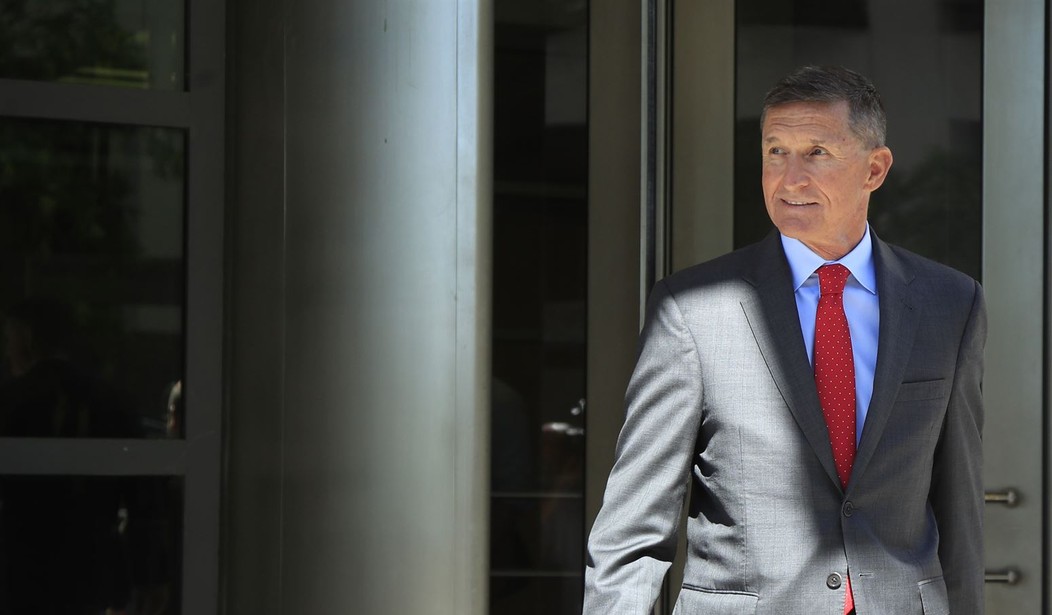



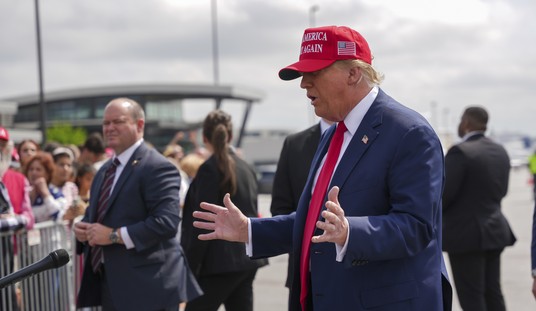


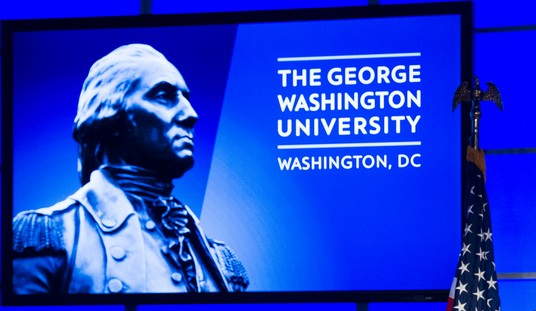




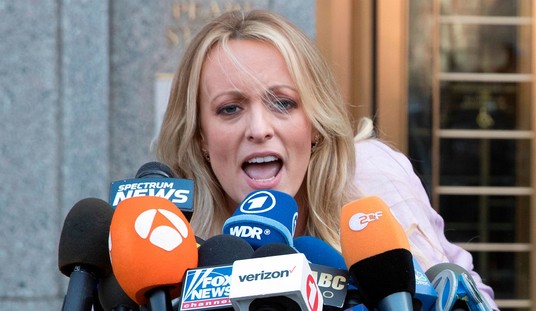
Join the conversation as a VIP Member